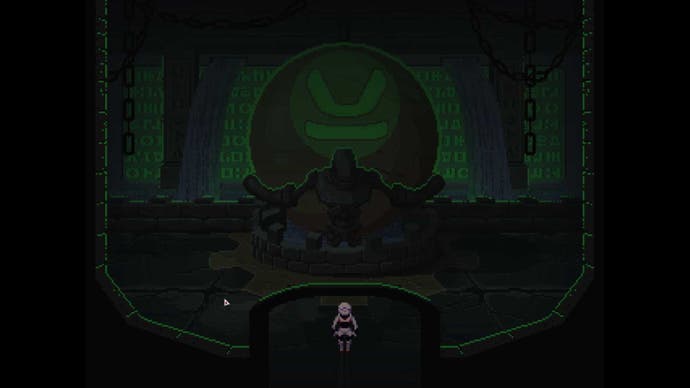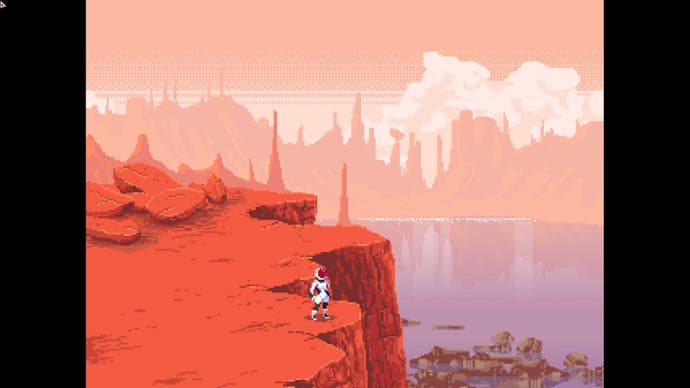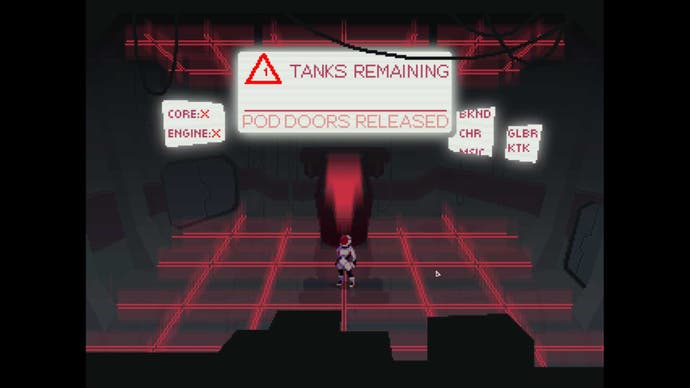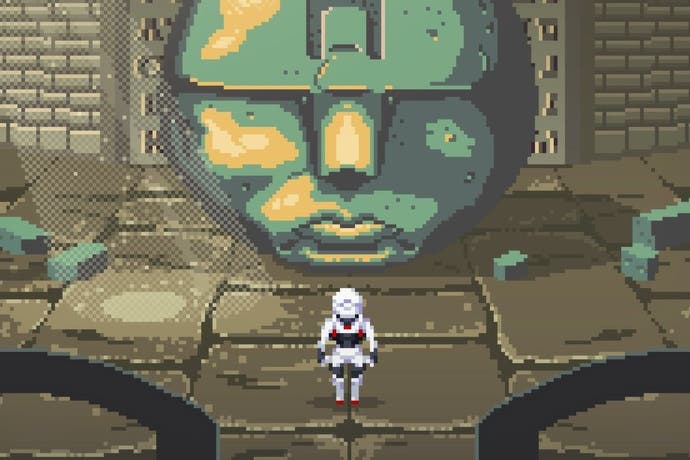Stranded review
Lost in space.
For as long as I can remember, my greatest fear has been some variant of death by suffocation: drowning, being trapped in a burning building or just about everything relating to space and space travel. To me, it's the most horrific way to go. That's a bit odd, considering how much I loved space as a kid; I grew up with Star Trek, Stargate and Star Wars. Even as an adult I regularly fantasise about being an explorer of the cosmos... before the crippling fear of asphyxiation kicks in.
I went into the slim indie exploration game Stranded thinking that it would force me to face that omnipresent dread. Instead I found a curious cocktail of distant, tenuous empathy as I watched someone steadily inch towards death on the harsh landscape of an unknown planet.
Superficially, Stranded seems fairly similar to Proteus. Both are games built on exploration and both eschew most of the conventions to which gamers have become accustomed. Those links quickly fall away, however. Where Proteus is intimate, personal and impressionistic, Stranded is cold, secluded and expressionistic. Stranded is Proteus' emotive foil, and that distinction can be seen at every level.

From the outset, Stranded is clearly distinct. It opens with a big, heavy logo amidst a sparse backdrop of stars and that evocative visual is accompanied by the kind of haughty crescendo that reminds me of the THX clip that plays in cinemas. That's followed with a reserved quietness and the sterility of an all-white room. There's no dialogue, no instruction, no guidance of any kind. There are no goals or achievements or anything. You're just there, left to figure out what happened and what's going on by yourself.
The basics aren't too difficult. There's an astronaut who has woken from cryo-stasis on alien planet with only a bit of oxygen left. Presumably, your goal is to help them survive, and your only tool for interacting with their world is to click about. You click to make the astronaut move... and that's about it.
The dearth of controls, items or any traditional game interactions is an odd, but appropriate choice. The game, so far as we can tell, is a voyeuristic examination of a lost explorer's journey, and your inputs only loosely correlate with what actually happens. You aren't playing as this far-flung adventurer; you're just along for the ride. More importantly, however, they are trapped, stranded on this planet. With no sign of a ship or anyone that might be able to build one, the sense of distance and helplessness made me feel a lot like someone at mission control loosely guiding an unfortunate soul.

Stranded's striking visuals are there to reinforce the foreboding sense of loneliness and doom, but they aren't exclusively grim. Exploring yields some rather odd discoveries. Giant rock people tower over your ward. They're animated with a rhythm that almost makes them look like they're breathing, but for the most part, they just stand there, staring. At night, the flora of this mystery planet glow and twist with marvellous hues. None of these oddities have any explanation and to argue otherwise would be to subvert their purpose. Wonder and awe in the face of nearly certain death, and the recognition that even the most hostile locales are intrinsically valuable, is a beautiful message.
That, in turn, is subverted by the steady progression of the pseudo-ambient soundtrack. Like Proteus, but with a bit more structure, Stranded has distinct beats that layer together as you guide the wanderer through the environments. Collectively, you build specific songs that correlate to a key emotional state before cutting to silence for a final, poignant moment and then a steady shift in tone. These background tracks help contextualise the exploration by creating clearly tense moments and clearly joyous ones in the very same areas.
That's certainly to developer Peter Moorehead's credit, as the game runs remarkably short - though that's not out of the ordinary for games of its style. Again the clearest analogue is Proteus, another game that ran for only about an hour. The difference here, however, is that you'll be retreading the same few screens several times, learning a bit more with each pass. The procedurally generated Proteus doesn't recycle its scenery, but Stranded does, and with that comes the need to make each piece of that journey discrete.

There's a lot more structure here than you might expect, and while those restrictions feel natural, it also means that they can become rote far too quickly. There's not enough variety in Stranded to warrant an unqualified recommendation. Even so, in my short time, I felt empathy for this nameless astronaut. I flipped between hopelessness and determination, reverence and indifference, and each was valuable and rewarding in a way that most games never bother with. Flawed and narrow as it may be, there are some moments in Stranded that I won't ever forget.
Exploring the ruins of ancient civilizations under the watchful eyes of a race of paleo-people isn't just surreal; it's also unnerving to see how little power you really have here. Without air, without any technology to speak of, without your friends or family, you're truly lost. That, for me at least, was the most stinging realisation I had. It reminded me of how vulnerable I am and how fragile life really is. It's humbling and terrifying.









